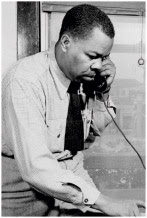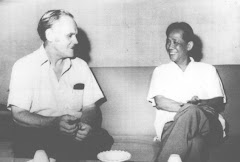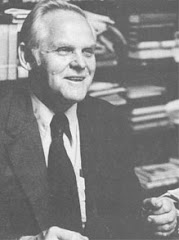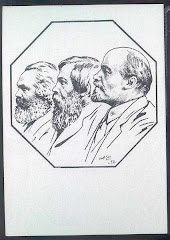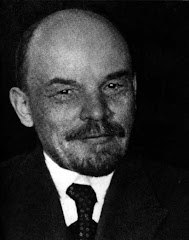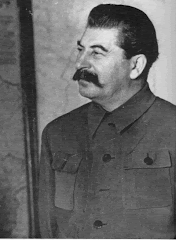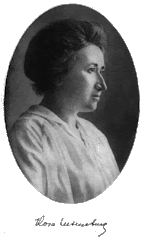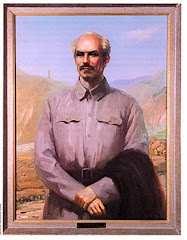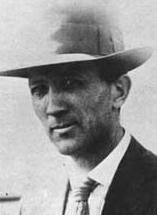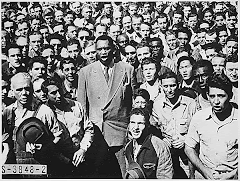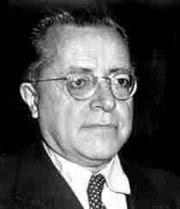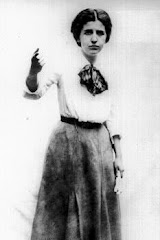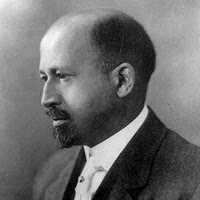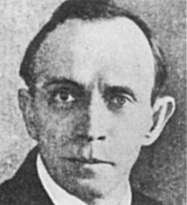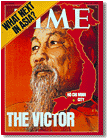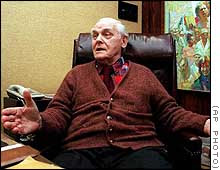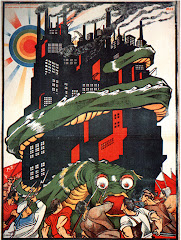Canadian Dimension posted this article as a link on their May Day calendar page… while I wrote the “comment” following this book review several months ago, there is a lot of relevant stuff in it and I guess because May Day has brought more attention to this article I started getting a few calls about what I wrote.
People are kind of intrigued by my comment pointing out that the Communist Manifesto was written with the intent of developing Communist Party organizations which would seem to be a no-brainer; but, apparently that has been lost on some people in the left looking for excuses to create all kinds of left/communist/socialist organizations except for the Communist Party with the thinking that you can just kind of pretend you can ignore history and facts.
I also dealt with “20th century socialism” a little.
My comment begins quite a ways down.
I am working on producing something about how to start a Communist/Marxist/Socialist club… I have posted bits and pieces on a few list serves to get some feed-back and ideas… if you have any thoughts pass them on and I will include them.
Alan L. Maki
North Winnipeg’s Seal of Identityhttp://canadiandimension.com/articles/1716/ Leo Panitch | January 7th 2009 | 1
A Glowing Dream: A Memoir
by Roland Penner
J. Gordon Shillingford Publishing, 2007
“The place of childhood provides the seal of identity.” This epigram opens the first chapter of Roland Penner’s memoir, Growing Up ‘Red’ in Winnipeg’s North End. It holds true even for those of us who grew up only “pink” — i.e. whose parents were CCFers rather than Communists, and who as a result never set foot in the Ukrainian Labour Temple at Pritchard and McGregor. Just how much Winnipeg’s working-class political culture sealed our identities was brought home to me last year when I sent my brother an article that touched on the strike at the Hurtig Fur Company in the early 1930s — during the course of which my father, while on the picket line, had his head split open by a scab. My brother, who was born in 1934, responded: “You know, when I was a little boy I used to get confused about whether the really bad guy’s name was Hurtig or Hitler.”
To be sure, the industrial side of Winnipeg’s history of class conflict makes very little appearance in this memoir — apart from a few sentences that recall Roland standing as a teenager “on the bald prairie with the temperature at about wind chill -50°F, handing out union leaflets” as part of an organizing drive at a plant on the outskirts of Transcona. This is hardly surprising, since the Penner family was preeminent for its involvement on the political side of the labour movement — so much so that on one memorable May Day, after some five thousand paraded along Portage Avenue and Main Street to end up at Market Square in front of the old City Hall, the three speakers who addressed them were Penner’s politically passionate and fiery mother, Rose; his eleven-year-old “child orator” brother, Norman; and, of course, his venerable father, Jacob, the famous Communist alderman for Ward Three. (Jacob Penner was “almost always dressed in a conservatively cut three-piece wool suit, a shirt with a stiff celluloid collar, a firmly knotted woolen tie, a carefully blocked and immaculately clean fedora, and sometimes, over his shoes, spats.”)
The story told here of the Penner family is a fascinating one, from its origins among downwardly mobile Mennonite ancestors who once owned an estate on the west bank of the Dniepr River to Jacob’s “form of marriage without clergy” to a Jewish orphan from Odessa, Rose Shapak. One of the most revealing aspects of north Winnipeg’s ethnic culture is uncovered here, as Jacob the Red, before his election as alderman in 1934 at the age of 54, moves from job to job for some two decades, including as a candy salesman with the help of Rose’s connection to the well-off Galpern family. Just as class conflict tore the Jewish community apart in a strike like the one at Hurtig’s, so did family ties often transcend the sharpest of differences in the class politics of Winnipeg’s North End.
The family anecdotes in this book are so profuse that many of the best are found in the footnotes. One of Rose’s nephews goes to the U.S.S.R. in 1933 and gets swept away five years later in Stalin’s murder machine. One of Jake’s brothers-in-law returns home after a visit to Germany in 1936, and becomes a supporter of the Winnipeg Nazi Party. Shortly after Jake is sent off to an internment camp as a Communist in 1940, sixteen-year-old Roland and his twin sister Ruthie are home alone listening to “Saturday Afternoon at the Met” (while Rose is in Ottawa heading up a delegation of wives petitioning for improvements in the camp’s conditions), and the RCMP come barging in waving a search warrant. As one Mountie moves to turn off the radio, Ruthie screams at him: “In this house no one turns off the opera!”
Indeed, so plentiful are Penner’s family anecdotes that one terrific example, which he told when Norman was honoured at a banquet at the University of Manitoba some two decades ago, is left out of this book. As I recall it (and have often retold it), when Norman marched into the principal’s office of his grade school to complain that the phys-ed instructor was picking on him because he was a Communist, the principal sternly and accusingly said (so everyone in the outer office could hear): “You’re a Communist?!” And then, after closing the door, he whispered, “So am I.”
Penner’s admiration for his parents’ Communist politics is palpable, and he explicitly contrasts this with the way other “red diaper babies” like Jim Laxer and Stan Gray have written disparagingly of their parents’ politics. Quoting Laxer to the effect that truth was “a very slippery commodity” in his home, Roland proudly writes: “That was not our experience…. We asked many questions and Dad and our mother told us what they sincerely believed to be true.” His father remains his “primary inspiration” — a man who “fought for the rights of others at great cost to himself” — and this is why his parents commitment to the “Glowing Dream” forms the title of his memoir. Yet, one might have wished that Roland had offered a more sober reflection on his father’s generation of Canadian Communists, not only with regard to what they knew or didn’t know about Stalin’s crimes in the U.S.S.R. or to the limitations of “democratic centralist” life inside the party, but also to the reformist strategy it pursued in the public arena.
Thus, we learn that Jacob Penner left the Socialist Party of Canada in 1911 because he felt it was too oriented toward raising class consciousness through Marxist education alone. He devoted himself to a life of “unceasing struggle for [the] daily needs and pressing problems” of working people in the belief that this practical activity would raise their consciousness as “the essential feature in the development of a socialist revolution.” Yet, when he died in 1965, aged 85 (having only retired as alderman three years earlier), the Winnipeg Free Press made a point of saying that he was a “political curiosity” who drew much of his support from people “who cared nothing for politics but who admired his efficiency and ability and who believed that he worked for the underdog.” Penner quotes this approvingly, without raising the question of how far this achievement nevertheless stood from the development of the class consciousness needed for supporting socialist revolution, which had been Jake’s original purpose. Would more attention to creative Marxist education have produced a better result? This memoir doesn’t go there, perhaps because Roland, from the time of his own engagement in student politics at the University of Manitoba in the late 1940s, adopted a stance “quite in keeping with my father’s approach to political activity on an issue-by-issue basis.” This approach did not mean that he often lost his bearings on the Left of the political spectrum — far from it. But as the main part of the memoir turns to cover Roland’s own adult political life, this “issue-by-issue” approach is visible all along the way: from his slow drift away from the CP (rather than exiting in flames as his brother did in 1957); to his joining Joe Zuken’s law firm; to his foundational role in the establishment of legal aid in Manitoba; to his almost happenstance decision to join the NDP; to what he calls his “life in government” as attorney general of Manitoba.
The limits of this approach came to a head with his role in the Meech Lake Accord, which he still sees as “a reasonable compromise” on the grounds that, while he agrees with those critics who said that “the separatists would always ask for more,” if the Accord had passed it would have ensured that “their call to break up the country [would have] fallen on less fertile ground.” This is pretty conventional stuff. He reserves his real ire, moreover, for the left critics of the Accord, especially those “many women … influenced by flamboyant statements … by Judy Rebick and the National Action Committee,” who saw the deal as concocted by “men in suits” with the aim of using Quebec’s recognition as a distinct society to override the Charter’s equality provisions (“This is, in my view, nonsense.”) and undermine federal social programs (the likelihood of which he sees as “essentially nil”).
Penner’s decision to side with the pragmatic men in suits against the socialist feminists during the Meech Lake controversy in 1987 was presaged by the controversy over the stand he took in 1983 over the newly opened Morgentaler abortion clinic in Winnipeg. In justifying why as attorney general he could not “authorize a blanket stay of proceedings” with respect to criminal charges against Morgentaler, Penner clearly sees himself as properly following the advice Justice Samuel Freedman gave him when he invited Penner to lunch after his appointment: the Attorney General “must not be political.” But if Penner now admits that his Morgentaler moment “still comes back to haunt me from time to time,” this may be because he knows very well (as he puts it in the memoir in relation to his discussion of the task force on legal aid in the 1970s) that “the legal system itself is so much the product of the establishment it serves that it cannot be turned into the front line for law reform and even more obviously for social transformation.” It most certainly can’t if attorneys general act as if their roles are non-political.
It is impossible to do full justice to Penner’s memoir without going even further over the word limit CD’s editors have allotted me. Suffice to say that this review touches upon only a few aspects of the rich and varied life recounted in this book. I especially enjoyed making the connection between Penner’s many entrepreneurial activities during his Communist boyhood in the 1930s with his “life as an impressario,” when he ran the Co-op Bookstore in the late 1950s and was responsible for bringing Pete Seeger and Odetta, among many others, to sing before Winnipeg audiences.
For me, at least, this enjoyable read was enhanced by being able to catch Penner out on such errors as telling us that Lenin “famously said that communism equals socialism plus electric power” (he actually said “soviets and electric power”). Or the misnumbering of the Chapter Two endnotes, so that the citation for the homage Penner pays to the great Fritz Hansen, the American running back who led the Blue Bombers to their first Grey Cup in 1935, amusingly offers sources to the On to Ottawa Trek of that year. The only unfortunate result of this misnumbering is that we never learn who actually coined that wise phrase: “The place of childhood provides the seal of identity.”
Tags: culture, labour, marxism, panitch, reviews, roland penner, winnipeg.
This article appeared in the January/February 2009 issue of Canadian Dimension magazine. SUBSCRIBE NOW to get a refreshing and provocative alternative delivered to your door 6 times a year for up to 50% off the newsstand price.
1 comments
· Leo Panitch’s review of “A Glowing Dream: A Memoir” itself is food for thought, dialogue, discussion and debate as much as is Roland Penner’s excellent book, which I would strongly recommend to every worker to read and study.
Panitch finds problems with Jacob Penner’s approach towards politics and assumes that Marxist education was not simultaneously taking place with the excellent work Jacob Penner did in serving working people on the Winnipeg City Council.
Having personally known many of those in Jacob Penner’s Communist Party circle, I know that this contention simply is not accurate.
And I believe that where Panitch is inaccurate here is the very crux of what is missing in working class struggles in Canada and the United States today, which is holding back the struggle of the working class for real power: social, political and economic; the struggle for socialism—the only alternative to this failed capitalist system.
What Panitch fails to understand is the way the Communist Party works in a collective way… while Panitch’s contention that Jacob Penner paid too little attention to Marxist education of the working class—a very dubious contention at best seeing as how Jacob Penner was the longest serving Communist elected public official in Canada, and perhaps the world—it is hard to believe that Panitch’s assessment is accurate that there was a lack of socialist/Marxist education taking place. How a Communist repeatedly gets elected and re-elected when there is a powerful corrupt web of capitalism spun all around him creating such a hostile environment would then have to be explained… an explanation Leo Panitch never broaches… not everything he hasn’t broached can be explained away as not being provided more space by Canadian Dimension since Panitch has had ample opportunity to do this elsewhere; and he has not.
Panitch forgets, or intentionally omits, the role of the Communist Party Club. Jacob Penner always “had his back covered” by a very powerful Communist movement consisting of very important Communist Party clubs in Manitoba which were more than a little responsible for his repeated re-election campaigns because of the “collective” way these Communist Party clubs operate as the “think-tanks” and “action centers” of the working class and people’s movements constantly stressing that all the various movements for democracy, peace, social and economic justice and for socialism need to work together in unity.
I have noticed that failure to understand the all-important role of Communist parties by Panitch in many of his other writings, too; which boils down to not understanding the very important and significant role these Communist Party Clubs play in winning the day to day struggles working people are constantly embroiled in as a matter to survive the obstacles and problems created by a capitalist social, economic and political system.
Like in this current book review, Panitch even writes about the Communist Manifesto but fails to understand that Marx and Engels in writing this brief pamphlet did so with the intent of encouraging workers to build Communist Parties to advance their demands for reforms AND winning social, economic and political power.
There is all kinds of ample evidence that Jacob Penner and his comrades and friends understood very well “What needs to be done?” And they did what needed to be done—on all fronts, from education to activism.
The real questions Leo Panitch might want to ponder is why Jacob Penner and the Communist Party in Winnipeg did so well while in most other places in North America the working class movement did not fare as well?
A big part of the answer to this question lies in attacks on the Communist Party by the government (which Jacob Penner and the Winnipeg Communists and their friends and allies so successfully fought back) and the attacks on the Communist Party from the right and ultra-left in the working class movement (again, attacks which Jacob Penner and the Winnipeg communists struggled against so successfully).
And Joe Zuken’s campaigns successfully built on all of this.
How and why this powerful Communist movement in Winnipeg lost momentum and suffered losses should be the topic of a forum with the proceedings published in another book… it would be very interesting to see if Leo Panitch’s ideas as to his “critique” (or not so thinly veiled attack on the role and objectives of Communist Parties) hold any water when placed side-by-side with the Communist perspective in all of this.
I really think we need to be asking what has held back the working class movements from achieving what Jacob Penner and his comrades and friends achieved not finding excuses to write them off because in these troubled times, there is not only a Canadian dimension to what these working class Communist Party activists achieved, there is something for all working class activists from throughout North America and the rest of the world to learn from… I find it rather ironic that many people who adhere and cling to Leo Panitch’s perspective regarding the Soviet Union and other socialist countries who found their own way to power and to hold on to that power which they so despise, now like to take cheap pot shots at the very man and the Communist Party he was a member of which climbed towards working class power so successfully in the electoral arena.
Which, also, begs the question: If Canada and the U.S.A. were the bastions of democracy capitalist politicians claim them to be; why then has the policy towards allowing Communists to freely participate in the political lives of these two countries been so restricted—and, I think I am being very charitable in using the term “restricted” when political suppression and repression are more appropriate.
If Leo Panitch would like to participate in an organized dialogue on this question concerning the legacy of the role of the Communist Party clubs I would be happy to participate, too.
Jacob Penner and Winnipeg Communists are not the only example of the success of Communist Party Clubs and how they combined electoral work with other facets of class struggle work—merely the best; an example which many working class activists today have a right to know about… just as working class activists today have a right to know about how Communists like Lyle Dotzert led the struggle to organize Ford in Windsor and his comrades like Phil Raymond, Nadia Barkan, Bob Travis, Bud Simons and Wyndham Mortimer across the river—south of the border—led the struggles to organize the Big Three and then elected the legendary working class activist and leader Coleman Young to public office… in order to know and understand this aspect of the working class struggle and history might make the difference as to whether the working class wins or loses the looming class conflict ahead.
The working class made numerous advances with Communist Parties in the lead… an historic fact that no amount of twisting and misinformation can erase—obscure, yes—but not erase because history is what it is.
Communists have made plenty of mistakes just like anyone else; but, the so-called errors attributed to us here simply are not correct.
There is this “movement” on the part of a section of the North American left which seeks to want to put everything from 20th Century Communism and socialism behind us as if it was all misguided and bad when nothing could be further from the truth.
Roland Penner’s excellent book provides us with aspects of working class history some people would rather just forget… just like they would like to forget Jacob Penner, Lyle Dotzert, Phil Raymond, Nadia Barkan (in Nadia’s case, the “historians” even give her the wrong name!)... but, forgetting primary aspects of history is not the same as these struggles and their leaders—with the Communist Parties at the forefront—being forgotten… or intentionally maligned as Leo Panitch does, and continues doing.
Recently Howard Zinn engaged in similar distortion on Amy Goodman’s “Democracy Now” when he stated:
“No, I was really gratified when Obama called for “Let’s tax the rich more, and let’s tax the poor and middle class less.” And they said, “That’s socialism.” And I thought, “Whoa! I’m happy to hear that. Finally, socialism is getting a good name.” You know, socialism has been given bad names, you know, Stalin and all those socialists, so-called socialists. They weren’t really socialist, but, you know, they called themselves socialist. But they weren’t really, you see. And so, socialism got a bad name. It used to have a really good name. Here in the United States, the beginning of the twentieth century, before there was a Soviet Union to spoil it, you see, socialism had a good name. Millions of people in the United States read socialist newspapers. They elected socialist members of Congress and socialist members of state legislatures. You know, there were like fourteen socialist chapters in Oklahoma. Really. I mean, you know, socialism—who stood for socialism? Eugene Debs, Helen Keller, Emma Goldman, Clarence Darrow, Jack London, Upton Sinclair. Yeah, socialism had a good name. It needs to be restored.”
Well Zinn—the great historian—apparently never heard of Jacob Penner, Willian Z. Foster, Paul Robeson Lyle Dotzert, Wyndham Mortimer, Phil Raymond or Nadia Barkan.
And Sam Webb, the revisionist “leader” of the CPUSA goes even further than Panitch or Zinn in saying he wants nothing at all to do with 20th Century socialism.
I find it very strange that all these attacks of a similar nature come at a time when the working class needs stronger Communist Parties than ever before… and slanting history to suit one’s own biased perspectives will not aid in building a winning working class fight-back as this rotten capitalist system collapses by the day from the time the bell rings on Wall Street until another plant is shut down, both throwing workers out into the streets as if they are merely disposable items like dirty baby diapers.
Alan L. Maki
Secretary/Treasurer
Minnesota/Dakotas District, CPUSA
#1. Posted by Alan L. Maki on January 13th 2009 at 10:30pm
Alan L. Maki
58891 County Road 13
Warroad, Minnesota 56763
Phone: 218-386-2432
Cell phone: 651-587-5541
E-mail: amaki000@centurytel.net
Check out my blog:
Thoughts From Podunk
http://thepodunkblog.blogspot.com/






